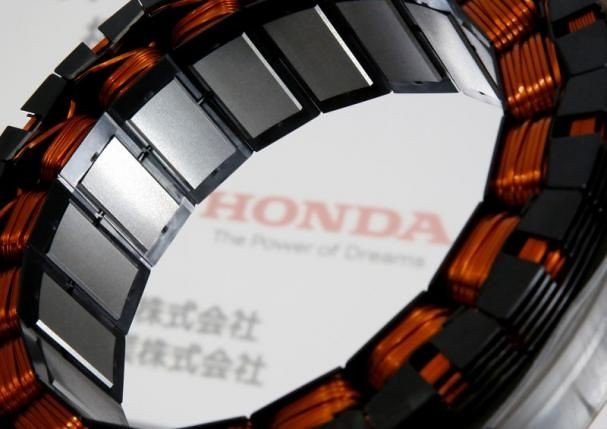
According to Reuters, Honda announced Tuesday, has been with Japan steel in Datong (Daido Steel) companies have jointly developed the world's first motor does not use any heavy rare earth metals, can be used in gasoline-electric hybrid cars. This technology breakthrough means that Japan will reduce China's reliance on heavy rare earth metals.
Hybrid integration of the gasoline engine and electric motor drive to improve efficiency in many developed countries has become a mainstream model. However, the car manufacturers in the stable dysprosium, terbium and other rare earth supply had been challenged. China is the main source of rare earths, accounted for more than 80% of total world exports. But controlling supply is expensive, and since 2010 tightened policies on rare earth exports due to excess supply and smuggling are rampant.
Automakers, including Toyota and Nissan continued to diversify sources of rare earths, in order to reduce its reliance on Chinese rare earths. Daido steel special steel solutions Vice President Atsushi Hattori said rare earth scarcity and uncertainty in China's export policies is a major concern of manufacturers. Just Cavalli iPhone 6 Case
Consulting firm IHS Automotive Analyst Hiroshi Ataka was quoted by Bloomberg News, is currently working on rare-earth-free main manufacturers including Japan Yaskawa Electric (Yasukawa Electric Corp.), Mitsubishi Electric (Mitsubishi Electric Corp.), Japan (Nidec Corp.).
Honda's Japan Daido steel joint design of hybrid electric vehicle motor light rare-earth element neodymium is used, in addition to China, North America and Australia are also supplies of neodymium element. The technology will be used by Honda in autumn this year Freed the next generation of mini-vans. Just Cavalli iPhone 6 Case
According to Honda's statement, in 2030, the company plans new energy vehicles in the company's product line from now approximately 5% to two-thirds per cent.

No comments:
Post a Comment